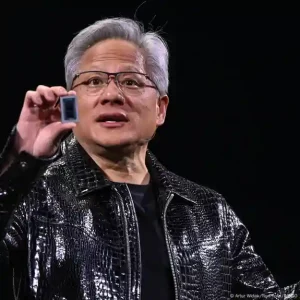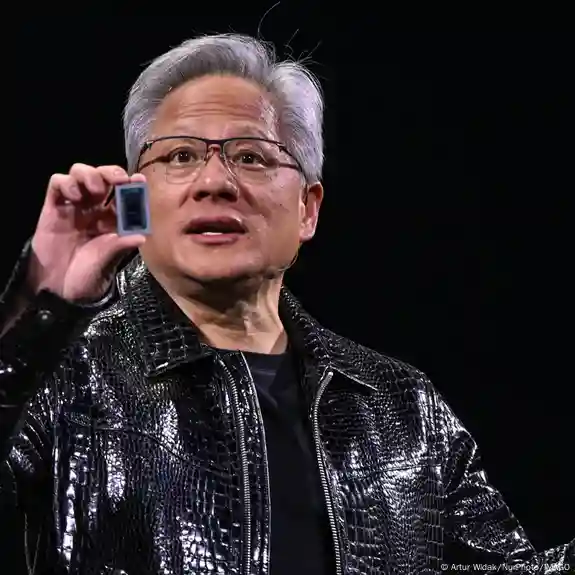The US government began issuing artificial intelligence chip export licenses after the revenue-sharing deal, despite security concerns.

The agreement reversed an earlier export ban, allowing Nvidia and AMD to resume sales of their AI chips to China.
According to reports in the Financial Times, Bloomberg, and The New York Times, Nvidia CEO Jensen Huang met with Trump at the White House last week and agreed to give his administration a share of the company’s revenue.
AI chip export licenses approved
The US Commerce Department began issuing licenses Friday for the sale of Nvidia’s H20 chip to China.
“We follow rules the US government sets for our participation in worldwide markets,” was the only comment a Nvidia spokesperson offered when asked about the deal.
AMD, which produces an AI chip called the MI308, did not respond to a Reuters request for comment.
China represents a significant market for both companies, with combined sales projected to exceed $25 billion (€23 billion).
Trump administration insists chips are less advanced
Critics say the move poses national security risks, arguing it could accelerate China’s AI capabilities.
“If this reporting is accurate, it suggests the administration is trading away national security protections for revenue for the Treasury,” said Alasdair Phillips-Robins, who served as an adviser at the Commerce Department during former President Joe Biden’s administration.
“It’s wild,” said Geoff Gertz, a senior fellow at the Center for a New American Security, an independent think tank in Washington, DC
“Either selling H20 chips to China is a national security risk, in which case we shouldn’t be doing it to begin with, or it’s not a national security risk, in which case, why are we putting this extra penalty on the sale?”
The Trump administration maintains the chips are less advanced than those sold to allies and argues the deal strengthens US tech dominance.
China, meanwhile, has raised security concerns over Nvidia’s H20 AI chips, saying they may contain backdoors.
China’s cyberspace watchdog summoned Nvidia at the end of last month to explain potential backdoor risks in its H20 chips. Nvidia denied the claims, insisting its products do not allow remote access.
Edited by: Karl Sexton
DW News


